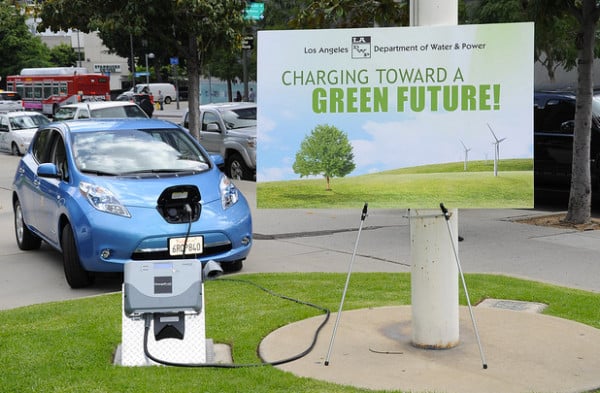VICTORIA — The B.C. government couldn’t find the money in its budget to replenish a $5,000 electric vehicle rebate program, and chose instead to reduce the incentive so that the funding can last out the year, says the energy minister.
Michelle Mungall said if the province had not cut the electric vehicle rebate program from $5,000 to $3,000 per vehicle, the program would have run out of money within two months due to the surge in British Columbians buying zero-emission vehicles.
“What we want to see is that continued uptake of making that switch (to electric vehicles),” Mungall said in an interview. “And to do that we had to relook at how we’re going to use the budget item to create incentives. Because if we kept going the way it was structured last week, we would run out of money probably in a couple of months.”
The government had set aside $42.5 million for the electric vehicle subsidy program in the fiscal year running April 1, 2019 to March 31, 2020. Demand spiked 214 per cent in May to 2,779 sold vehicles, when drivers realized they could add B.C.’s $5,000 incentive with a matching federal electric vehicle rebate, and a limited-time $6,000 SCRAP-IT rebate to get as much as $16,000 off the price of a new zero-emission vehicle.
“We have a bit of a good problem and that is the program is much more popular than we thought,” said Mungall.
That left the province in an awkward position.
Mungall said there is no contingency money to add into the program without taking it away from other core government services like health care or education. But B.C.’s research also suggested that if the program were to disappear entirely, like in Ontario, then electric vehicle sales would flatline.
“What we learned from Ontario is if you cut off the rebate program you are basically cutting off sales,” she said. “So what we wanted to do is continue.”
The resulting changes significantly reduced the program’s financial incentives. The eligible price of vehicles was cut almost 30 per cent, to $55,000, meaning rebates are no longer available for popular brands from Tesla, Hyundai, Volvo and other manufacturers. The lesser $3,000 rebate will also only apply to “fuel-cell and longer-range plug-in hybrid electric vehicles” and drop to $1,500 for “shorter-range plug-in hybrid electric vehicles.”
The changes took effect immediately on June 22, though buyers who had put down deposits on a vehicle prior to that date will still be eligible for the full $5,000 if they can get delivery of the car and close the deal within 90 days.
The lesser rebate program “I think is going to take us to the end of the budgetary year,” said Mungall. Government estimates another 3,800 buyers could still get some sort of rebate.
There was no money allocated in the last provincial budget for a rebate programbeyond this year. The early end may present a problem for the New Democrat government. Converting motorists to electric vehicles had been a centrepiece of the government’s CleanBC climate change plan, which aims to cut pollution by 40 per cent by 2030.

The government also passed legislation this spring to phase out gas-powered cars in the province and mandate all new car purchases be zero-emission by 2040. The law sets an interim target of 10 per cent of all new light-duty car and truck sales be zero-emission by 2025.
Liberal critic Peter Milobar said the NDP had promised to fully fund pollution reduction programs like clean vehicle rebates out of extra revenue generated by increasing the carbon tax.
“Why are they not putting the carbon tax towards its intended purpose, to drive down GHG emissions?” he said. “This is supposed to be one of their signature programs.”
Milobar said several ministers, including Mungall, were dismissive of his questions in the legislature this spring over whether the program would run out of money, noting there was contingency funding available. “That’s nowhere to be seen all of a sudden,” he said.
Mungall said inroads made in new vehicle purchases even with the limited funding have placed B.C. ahead of its targets.
“Right now we’re tracking to meet our 10 per cent target a whole year years ahead of schedule, so it’d be 2022,” said Mungall.
“Those rebates are helping create that demand, which will ultimately be the major factor in price dropping.”
[WooZoneProducts asin=”amz-B071YDGJYZ”][/WooZoneProducts]
